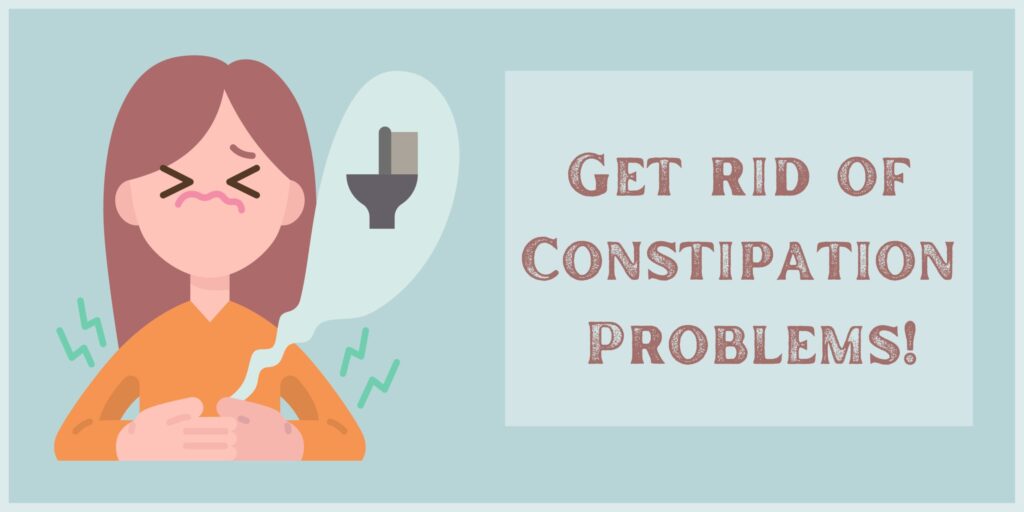Symptoms of constipation
The symptoms of constipation, along with causes, relief, and prevention, are explained thoroughly in this post. Constipation is appropriately defined as having less than three bowel motions per week and the frequency with which you “go” varies significantly from person to person. Several people have bowel motions multiple times each day, while others only have them once or twice per week. Whatever bowel movement pattern you have is distinct and natural for you – as long as you don’t deviate too much from it. Whatever your bowel pattern is, one thing is definite: the longer you wait to “go,” the more challenging it is for faecal to pass. If you suffer from constipation, you are not alone; it is among the most common gastrointestinal ailments worldwide. Constipation can affect people of all ages, and additionally, certain individuals and circumstances increase the likelihood of developing persistent constipation. It occurs most frequently due to changes in food or routine or as a result of insufficient fibre consumption.
Constipation symptoms
The symptoms of constipation entail struggling to release stools, needing assistance to clear your rectum, including pressing on your belly with your hands and removing stool with a finger, releasing less than three stools per week, and experiencing lumpy or hard faeces. Constipation might be termed chronic if you’ve encountered two or more of such indications during the last three months. Older adults are less energetic, possess a lower metabolism, and have weaker muscular contraction endurance in their digestive system than younger people. Being a woman is challenging, specifically during pregnancy and after motherhood. Changes in a woman’s hormone levels increase her susceptibility to constipation. Pregnant women experience constipation because the foetus squeezes and constricts the digestive tract, slowing stool movement. Constipation manifests itself in the following ways: you have stomach aches or cramps, and you appear bloated and nauseous. Certain vitamins and minerals, such as magnesium and vitamin C, can produce loose stools or diarrhoea. Constipation may also be caused by various supplements, like calcium and iron. Individuals should consult their physician before beginning or discontinuing a vitamin or mineral supplementation.
Constipation causes
Constipation can be caused by a variety of factors, including lifestyle preferences, drugs, medical disorders, and pregnancy. Feeling as if your rectum is blocked and preventing you from bowel motions is one of the symptoms of constipation. It’s not uncommon for people who lead busy lives to suffer from constipation, which is brought on by factors such as a lack of bowel movement due to stress or worry, or by consuming excessive amounts of dairy products like milk and cheese. Diets poor in fibre and physical inactivity are other significant contributors to constipation, as is an absence of fluid intake, particularly water. Antinausea, anticonvulsant/seizure, psychiatric, and several blood pressure medications are among the meds that might cause constipation. Intense pain and allergy medications, iron tablets, antacids containing calcium or aluminium, antidepressants, and nonsteroidal anti-inflammatory drugs are also important causes of constipation. Constipation can be caused by various medical and health issues, including pregnancy, multiple organ diseases, digestive tract structural anomalies, intestinal obstruction, lazy bowel syndrome, and neurologic disorders. Constipation is caused by outlet dysfunction, diverticular disease, irritable bowel syndrome (IBS), colorectal cancer, and endocrine issues such as diabetes. A large percentage of kids experience constipation.
Relief and prevention from constipation
The majority of minor to medium constipation episodes can be handled at home. Self-care begins with an inventory of the foods and beverages you consume and then implementing adjustments. Several options for relieving constipation include: changing your diet by increasing your intake of fruits, vegetables, whole grains, and other high-fibre foods; keeping a food diary and identifying foods that cause constipation; and drinking two to four additional glasses of water each day. Avoid caffeinated beverages and alcohol, which can dehydrate you. Get moving, exercise, and examine your toilet seating position; lifting your feet, leaning back, or squatting might instantly make a bowel movement simpler. These are all things that will assist you in managing constipation. Your doctor will assess your prescriptions and supplements, if applicable, along with self-care. The symptoms of constipation include the sensation of not being able to fully clear your rectum of stool. Consult your physician if you notice inexplicable and prolonged abnormalities in your bowel movements.



